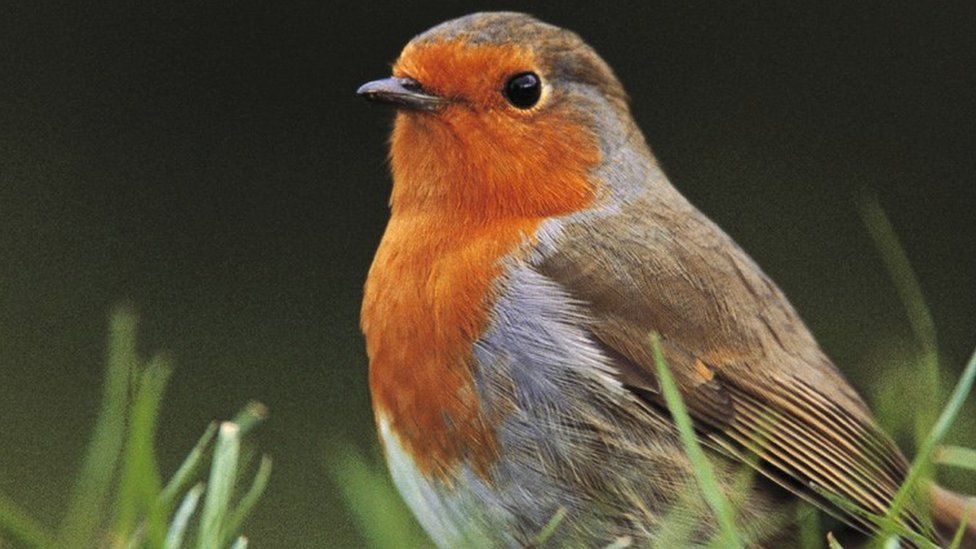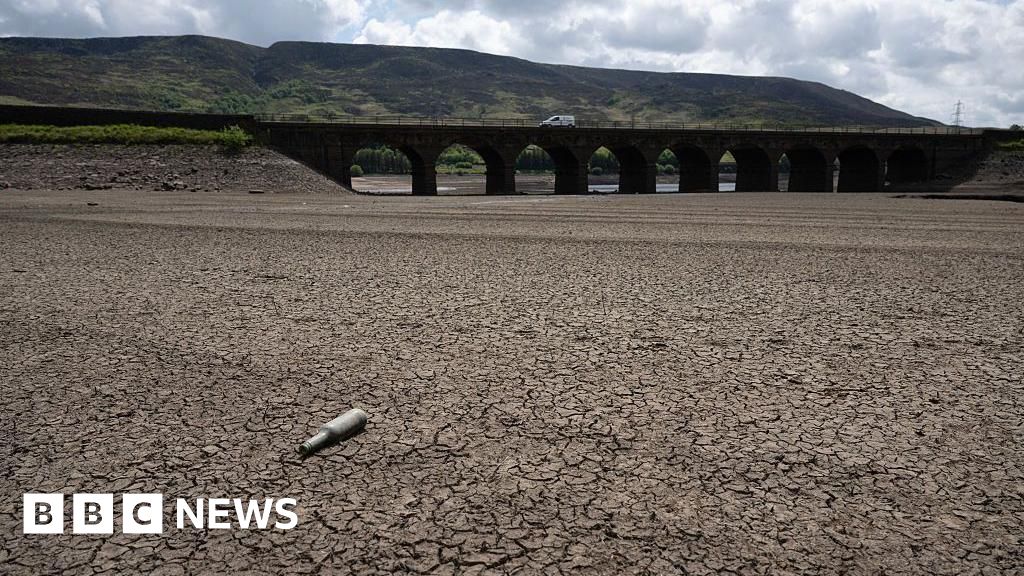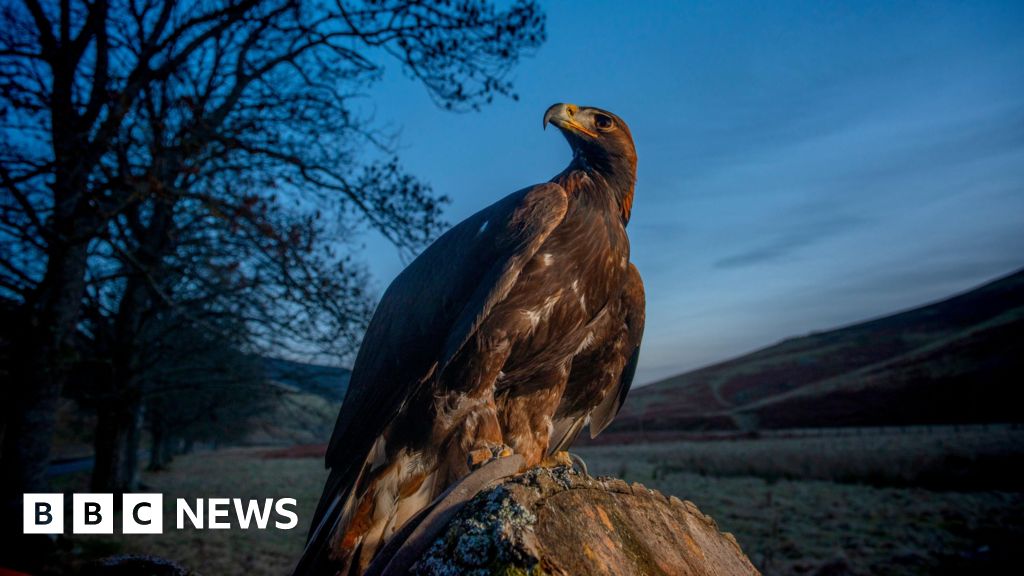ARTICLE AD BOX
 Image source, RSPB
Image source, RSPB
A curious robin, the sixth most common garden bird
By Justin Rowlatt
Climate editor, BBC News
Fewer wild birds are visiting UK gardens, with greenfinches, starlings and sparrows seeing the greatest decline, according to the RSPB.
It comes as the conservation charity launches its annual Big Garden Birdwatch, the world's biggest wildlife citizen science project.
The once plentiful species are being spotted much less frequently than when the survey was launched 45 years ago.
But there are winners too. Goldfinches, woodpigeons and parakeets are thriving.
New analysis of data from the surveys show that a well established fall in wild bird sightings is continuing, with gardens being visited by four fewer birds an hour than two decades ago.
Instead of an average 28 birds visiting, now UK gardens see just 24 on average.
Beccy Speight, chief executive of the RSPB told the BBC: "Sadly this snapshot is a reminder of how many of our most loved birds are at the forefront of the nature and climate emergency."
Climate change is affecting bird populations because it is disrupting the pattern of the seasons. When spring comes early, for example, birds breed sooner than usual and that means baby birds can sometimes face sudden changes in temperature or a shortage of food.
The charity's Big Garden Birdwatch (BGBW) survey, has been taking place over the last weekend in January every year since 1979.
Up to half a million people take part each year, spending an hour watching birds in their gardens, from their balcony or in a local park.
The RSPB is urging as many people as possible to get involved with the latest survey, which is happening this weekend. You can find out how here.
The survey is a snapshot over a weekend and favours birds that live and feed near human populations, but the broad trends it shows are mirrored by other more systematic surveys.
A survey published by the British Trust for Ornithology last year found that almost half of all bird species are in decline, for example.
The BTO found the number of wild birds in Britain has fallen by 72 million since 1970.
The most dramatic declines have been in what were once the UK's most familiar species, including sparrows, starlings and greenfinches.
Image source, RSPB
Image caption,The house sparrow is still one of the most frequent visitors to UK gardens but sightings have fallen since the survey began
Most of that decline happened before 2000, and BGBW results since then suggest there has been a small but welcome uptick in numbers of sparrows and greenfinches after that.
But the starling has not been so fortunate. It is still a regular visitor to UK gardens, ranked as number three in the BGBW survey, but the numbers recorded have fallen by over 80% over the last four and half decades.
Their decline is thought to be due to the loss of permanent pasture, increased use of farm chemicals and a shortage of food and nesting sites in many areas.
Greenfinches have been hit hard too, with counts down by over 60% over the same period.
The species has been severely impacted by a disease called trichomonosis, carried by a parasite that can live on dirty birdfeeders - that's why they must be cleaned regularly.
Some other species have been thriving, however.
Image source, RSPB
Image caption,A winner: goldfinches are far more common than they used to be
Goldfinches did not even make the top 15 in the BGBW rankings in 1979. Now they are up in seventh place. They have benefitted from the increase in birdfeeders in the UK.
Woodpigeons are also doing very well, up from thirteenth place in the survey to fourth position with sightings up tenfold. The RSPB says the UK now has "internationally significant" numbers of woodpigeons.
Another winner is the long-tailed tit. It did not feature in the top 15 species when the BGBW began but now regularly appears in the top 10. Climate change has made conditions in the UK more favourable for the bird, according to the RSPB.
Image source, BBC/Gwyndaf Hughes
Image caption,Anne Brenchley and friends enjoy birdwatching in their gardens in North Wales
Anne Brenchley of Mold in North Wales has been a keen birdwatcher for the last 60 years. Like most British birdwatchers she's noticed a big reduction in the range of birds in her garden.
"We still get lots and lots of common birds", says Anne, "but the numbers of some of the more unusual birds have gone down".
She says she now never sees less common species like treecreepers, nuthatches and green woodpeckers in her garden.
What you can do to help wild birds
- Put out some food. You could put up a birdfeeder or maybe just some kitchen scraps on a windowsill.
- Give birds some plant cover if you can. Dense bushes and shrubs are great especially if they produce seeds and berries birds can eat.
- You might also want to consider getting involved with your community to push for wider action to protect the natural world.

 1 year ago
117
1 year ago
117








 English (US) ·
English (US) ·